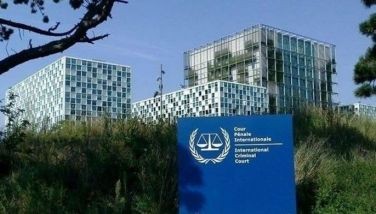Sereno warns of repercussions of Poe DQ
MANILA, Philippines – Disqualifying Sen.Grace Poe from the presidential election in May for being a foundling could set a dangerous precedent and have dire consequences if upheld by the Supreme Court (SC), Chief Justice Ma. Lourdes Sereno warned yesterday.
At the resumption of the oral argument on Poe’s case, Sereno said declaring foundlings as not natural-born and ineligible for national elective posts would have repercussions on the rights of similarly situated government personnel and scholars.
She expressed belief the position of the Commission on Elections (Comelec) against Poe is discriminatory to foundlings as it makes them second-class citizens.
In her interpellation of Comelec commissioner Arthur Lim, the SC chief read a long list of positions in government that are open only to natural-born citizens.
“If you are saying that foundlings are not natural-born citizens, have you thought about the impact on the rights of all foundlings?” Sereno asked Lim.
“The court now has to categorically answer the question about her (Poe’s) status, because the pronouncements we will make will affect so many others,” she stressed.
Citing constitutional provisions on citizenship, particularly on the theory of bloodlines and the rights of foundlings, Sereno lamented that foundlings would be deprived of the rights of ordinary citizens if the SC upholds the position of the poll body on Poe’s case.
“If I am going to say that a foundling is not a natural-born Filipino citizen, that they cannot hold thousands of offices that require natural-born citizens, any of those persons holding any of those positions, who is alleged to be a foundling, must be removed?” Sereno continued.
“If your relative is a foundling, a petition may be brought against them to remove them from office, so the Solicitor General’s office must set up a special division to handle all the cases,” she added.
The Chief Justice added that the high tribunal, in past cases, has accorded foundlings the presumption of status as natural-born Filipinos beyond simply applying the jus sanguinis (right of blood) principle on citizenship.
She cited for instance the case of the senator’s late father, action star Fernando Poe Jr. or FPJ, whose citizenship was also questioned in 2003 when he ran in the 2004 presidential elections.
Presumption enough
Sereno explained that the SC presumed that FPJ’s grandfather Lorenzo Poe was natural-born, despite the fact that the only proof of this was his death certificate in 1984.
“In the absence of any evidence to the contrary, it should be sound to conclude, or at least to presume, that the place of residence of a person at the time of his death was also his residence before death,” Sereno quoted from the ruling.
“The dearth of evidence” in the FPJ disqualification case, she added, “did not prevent the court from concluding the natural-born status of three generations of Poe males.”
- Latest
- Trending































